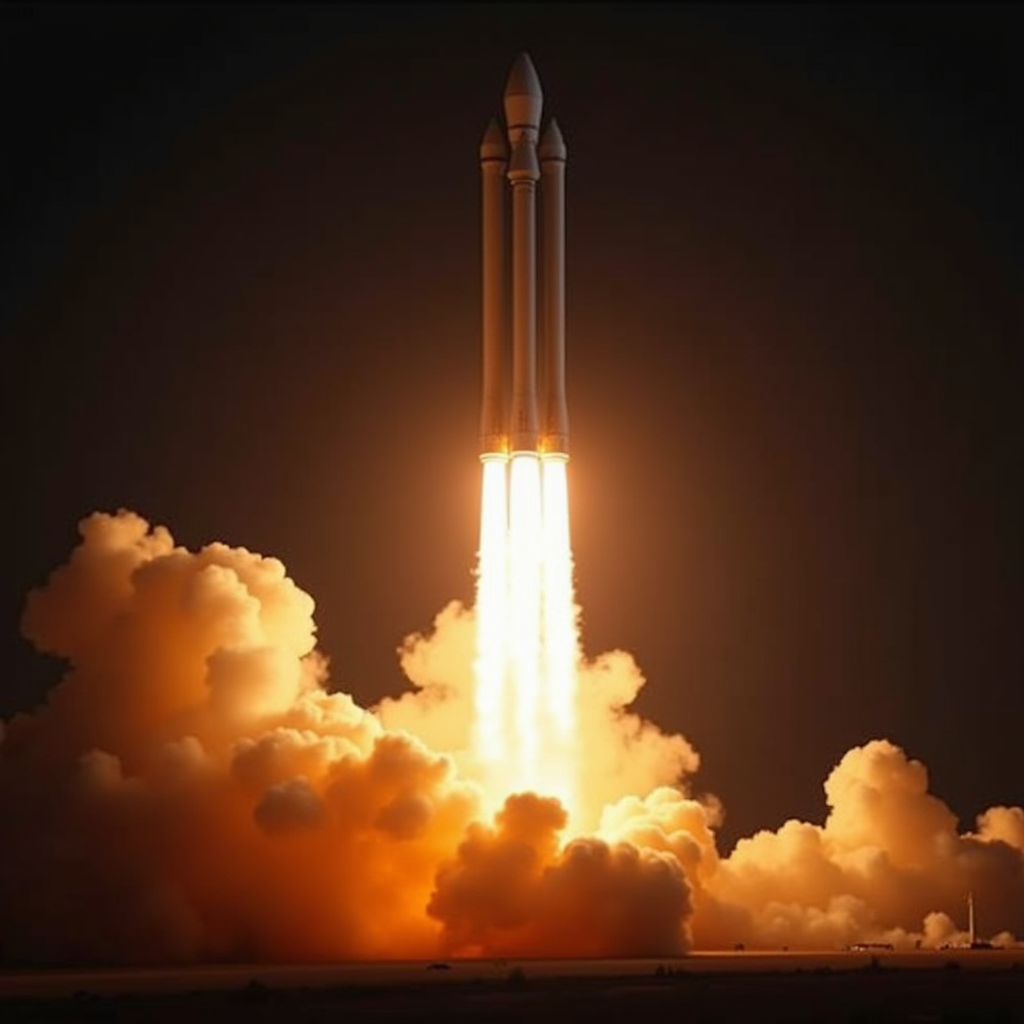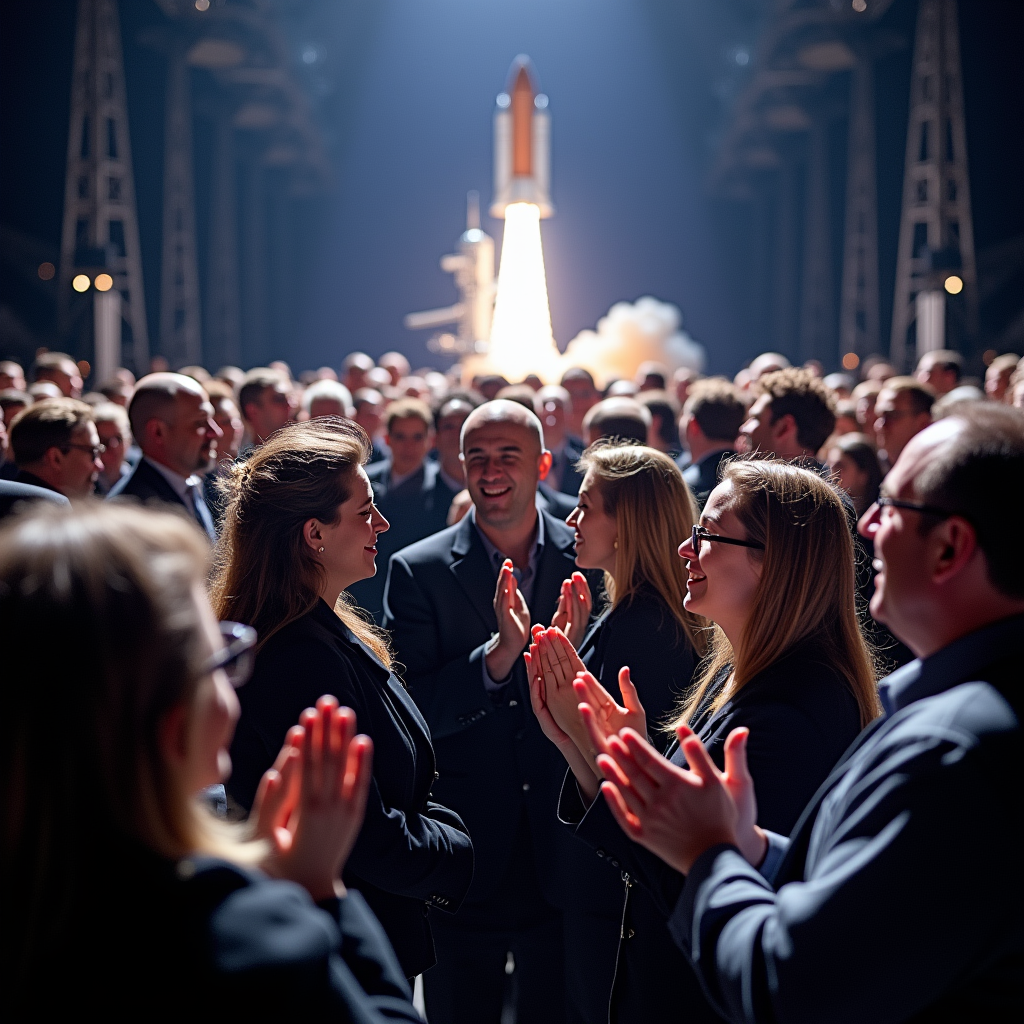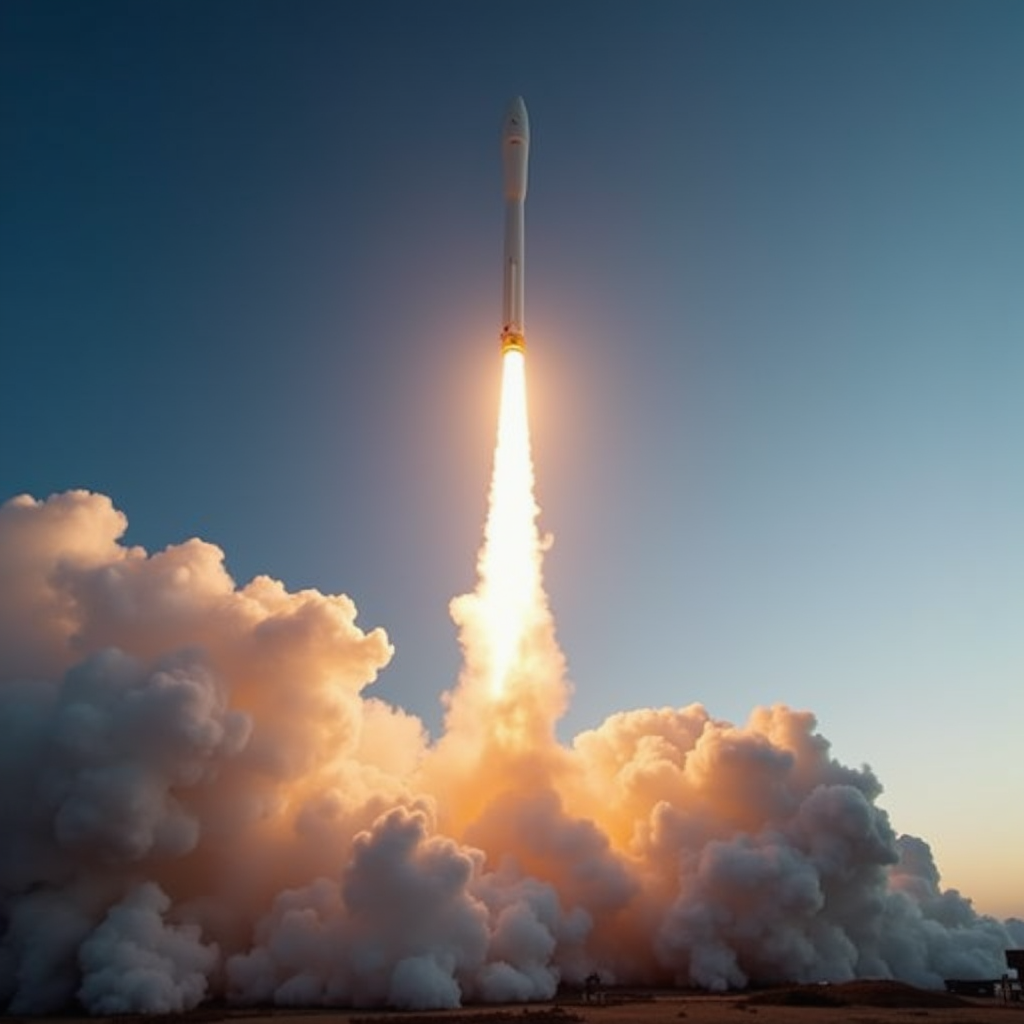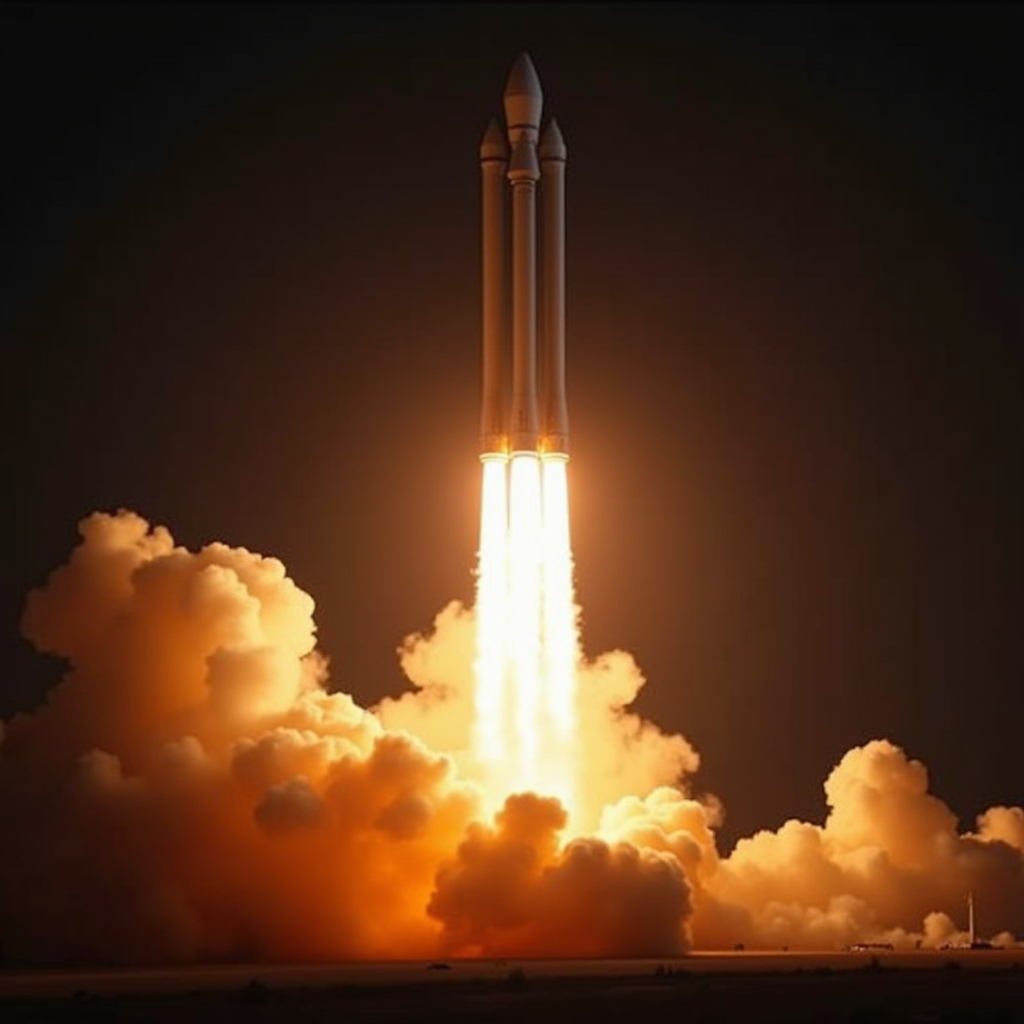In a groundbreaking achievement, Blue Origin etched its name into the annals of spaceflight history, becoming the first new space company to successfully reach orbit on its inaugural orbital launch attempt.

The Dawn of a New Era in Spaceflight
The predawn hours of Thursday marked a pivotal moment as Blue Origin, the company founded by Jeff Bezos, defied the odds and accomplished a remarkable feat. With its New Glenn rocket roaring to life, the company became the first to successfully reach orbit on their first launch with a new orbital-class rocket, ushering in a new era of commercial spaceflight.

Blue Origin’s Historic Orbital Achievement
The seven BE-4 engines on the first stage booster ignited at 2:03 a.m. EST, illuminating the skies with a brilliant orange glow that transitioned to blue as the liquified natural gas-fueled rocket began its journey from pad 36 at Cape Canaveral Space Force Station. After a successful stage separation, Blue Origin confirmed the reignition of three out of the seven BE-4 engines to perform a nearly 30-second entry burn.

Overcoming Obstacles on the Path to Orbit
Blue Origin’s path to this historic achievement was not without its challenges. The company faced multiple weather-related delays leading up to launch day, and even during the countdown, uncertain skies threatened to delay the mission yet again. Additionally, they encountered technical issues, including ice forming in a purge line on an auxiliary power unit, which initially prevented Monday’s launch attempt.

The Suspense Builds: Will the Booster Land?
One of the goals of the NG-1 mission was an ambitious attempt to land the first stage booster, aptly named ‘So You’re Telling Me There’s a Chance,’ on Blue Origin’s landing vessel, ‘Jacklyn,’ positioned in the Atlantic Ocean. While the touchdown was ultimately unsuccessful, Blue Origin had repeatedly emphasized that landing the booster was an aspirational goal, not their main objective.

Reactions from the Space Community
The space community erupted with accolades, welcoming Bezos and his company into the exclusive club of those who’ve successfully flown to orbit. SpaceX founder Elon Musk congratulated Blue Origin, while companies like Astra, Rocket Lab, and Firefly Aerospace also extended their congratulations on this historic achievement.

What’s Next for Blue Origin’s Orbital Ambitions?
Following the elation of successfully reaching orbit, Blue Origin will return to a steady workflow to complete work on its second New Glenn rocket. The company has about seven or eight upper stages and two boosters in production at their manufacturing facility near the Kennedy Space Center in Florida. This mission was the first step in certifying the New Glenn rocket to earn contracts as part of the U.S. Space Force’s National Security Space Launch program.

Paving the Way for Future Launches
Blue Origin’s historic orbital achievement paves the way for future launches and solidifies the company’s position in the burgeoning commercial spaceflight industry. As they continue to refine their processes and overcome challenges, the pursuit of orbital mastery will undoubtedly yield further groundbreaking accomplishments.

The Pursuit of Orbital Mastery Continues…
While this inaugural orbital launch marked a significant milestone, it is merely the beginning of Blue Origin’s journey into the vast expanse of space. With unwavering determination and a relentless pursuit of innovation, the company is poised to push the boundaries of what’s possible, leaving an indelible mark on the future of spaceflight.















